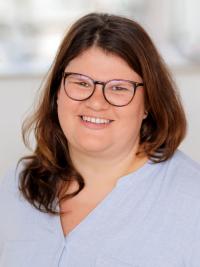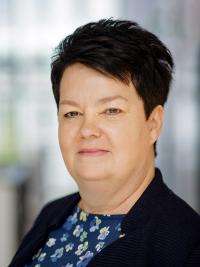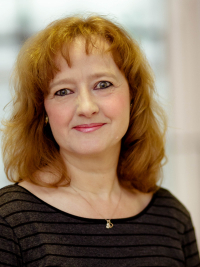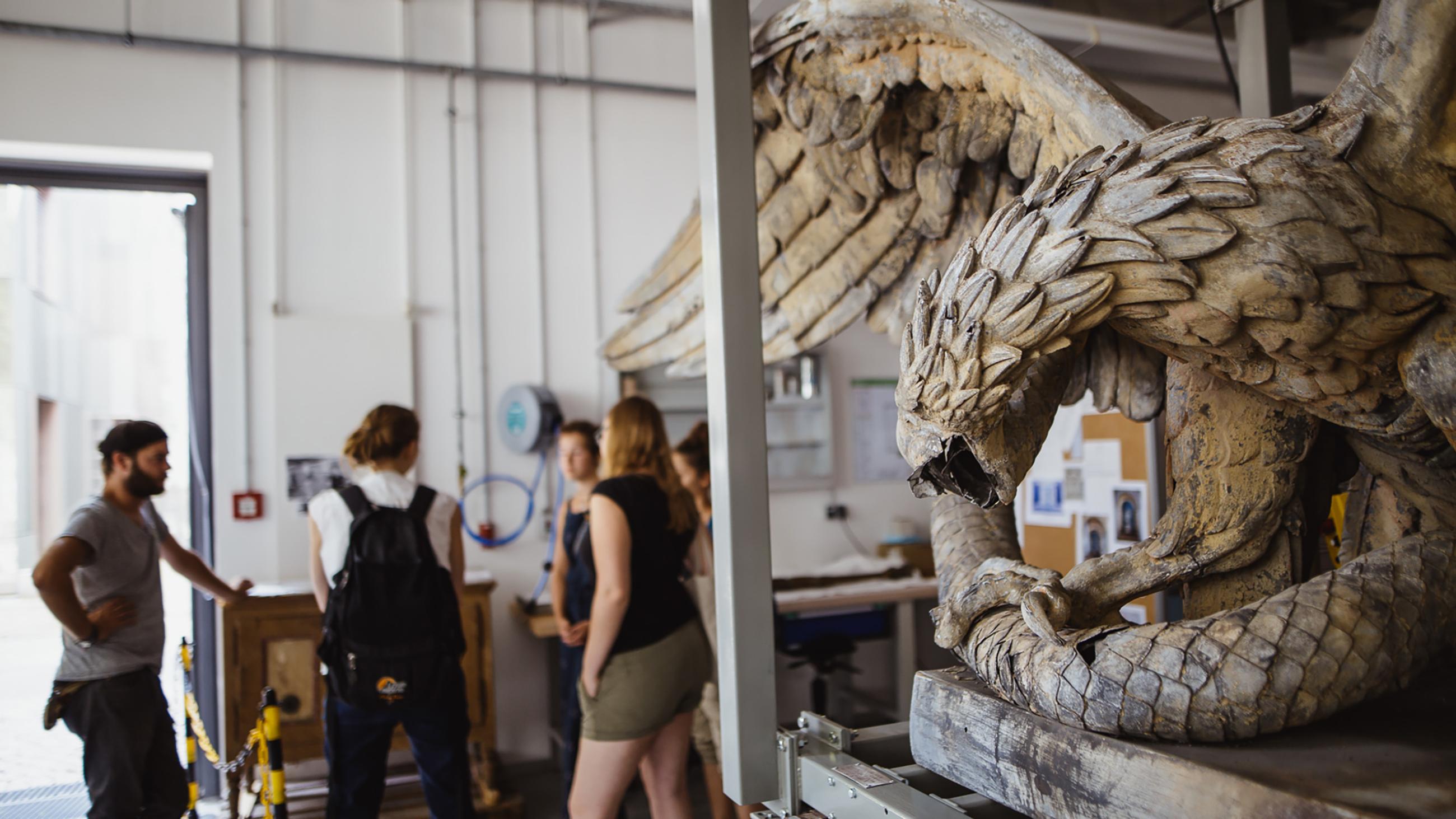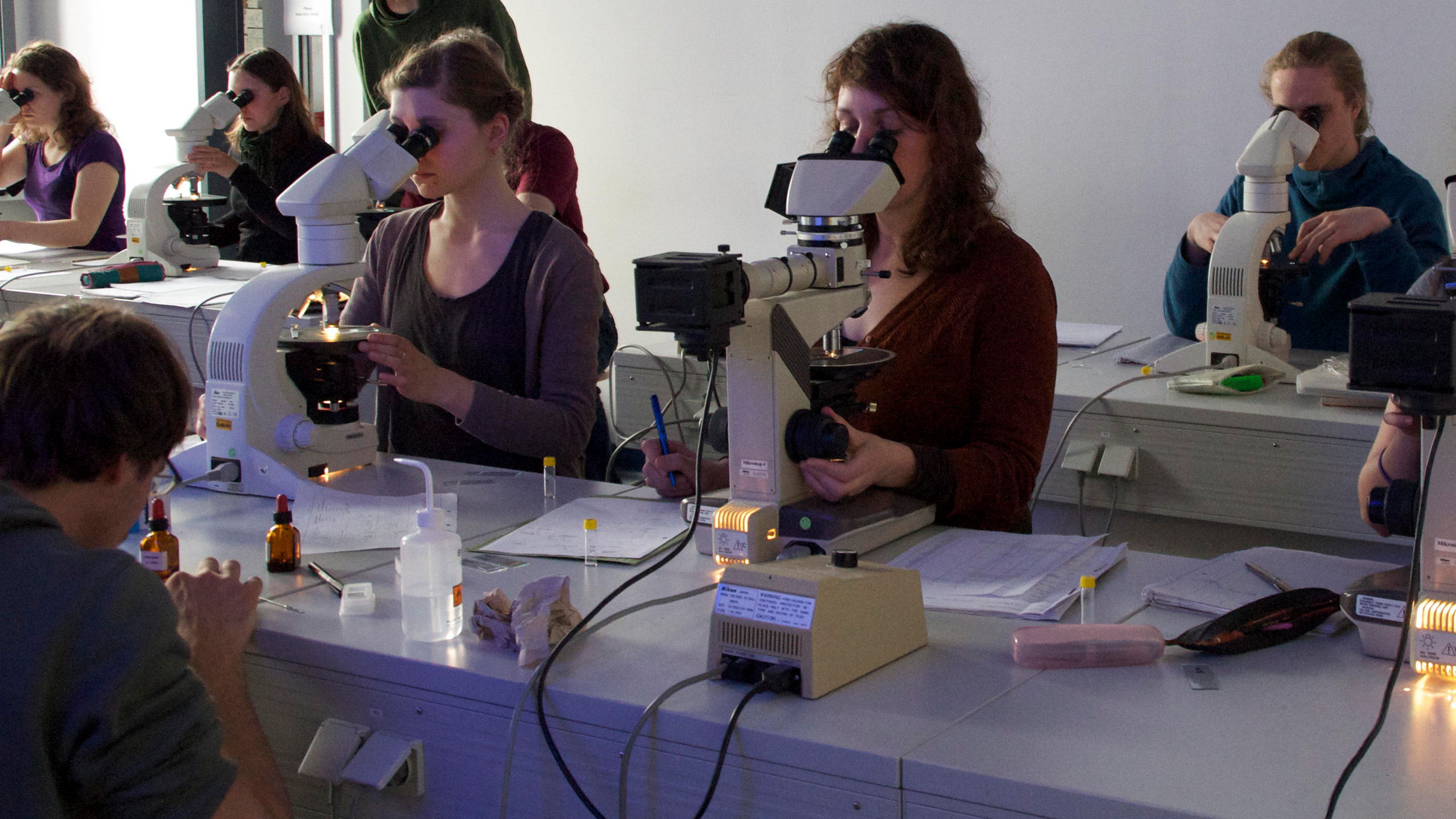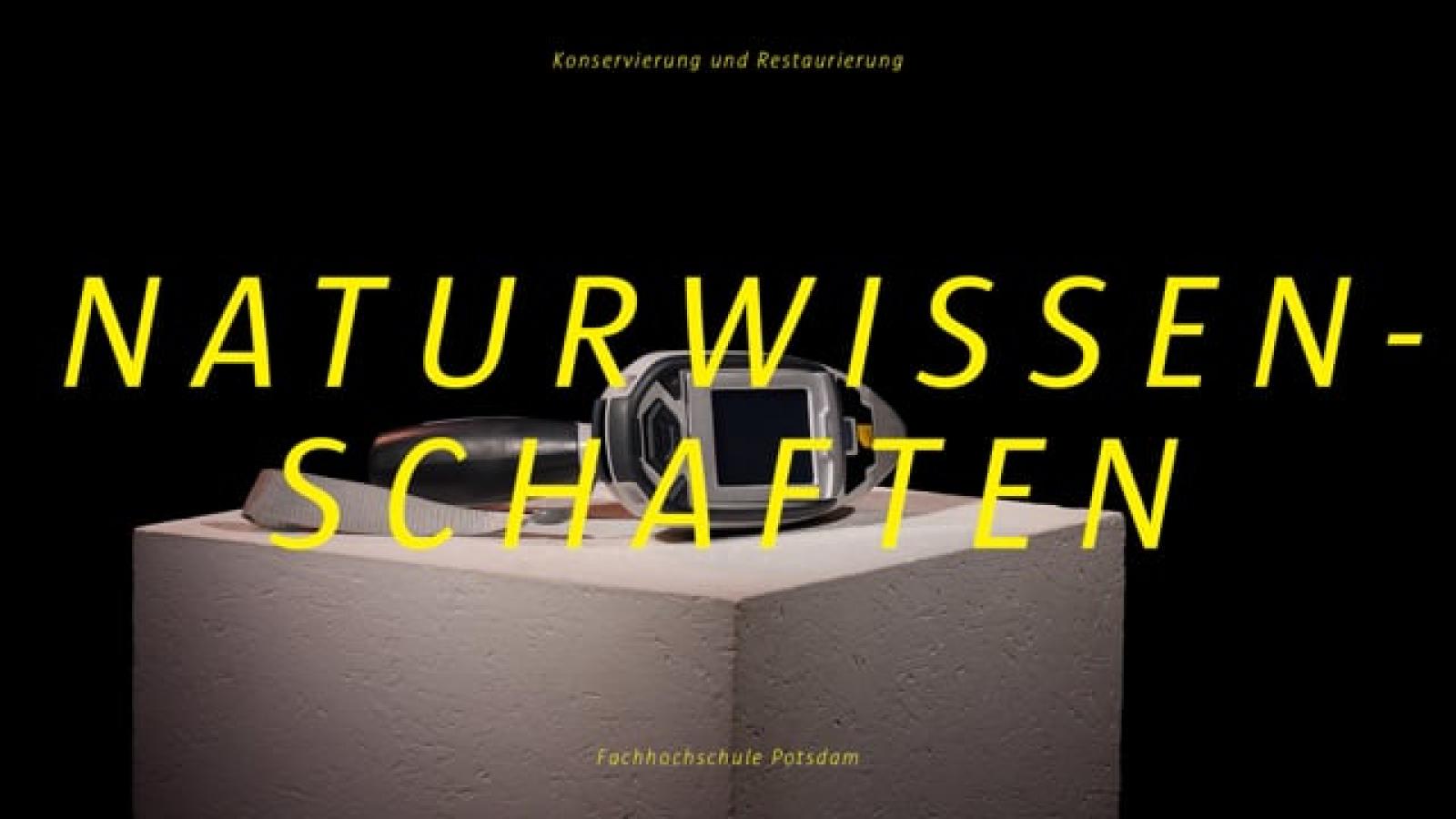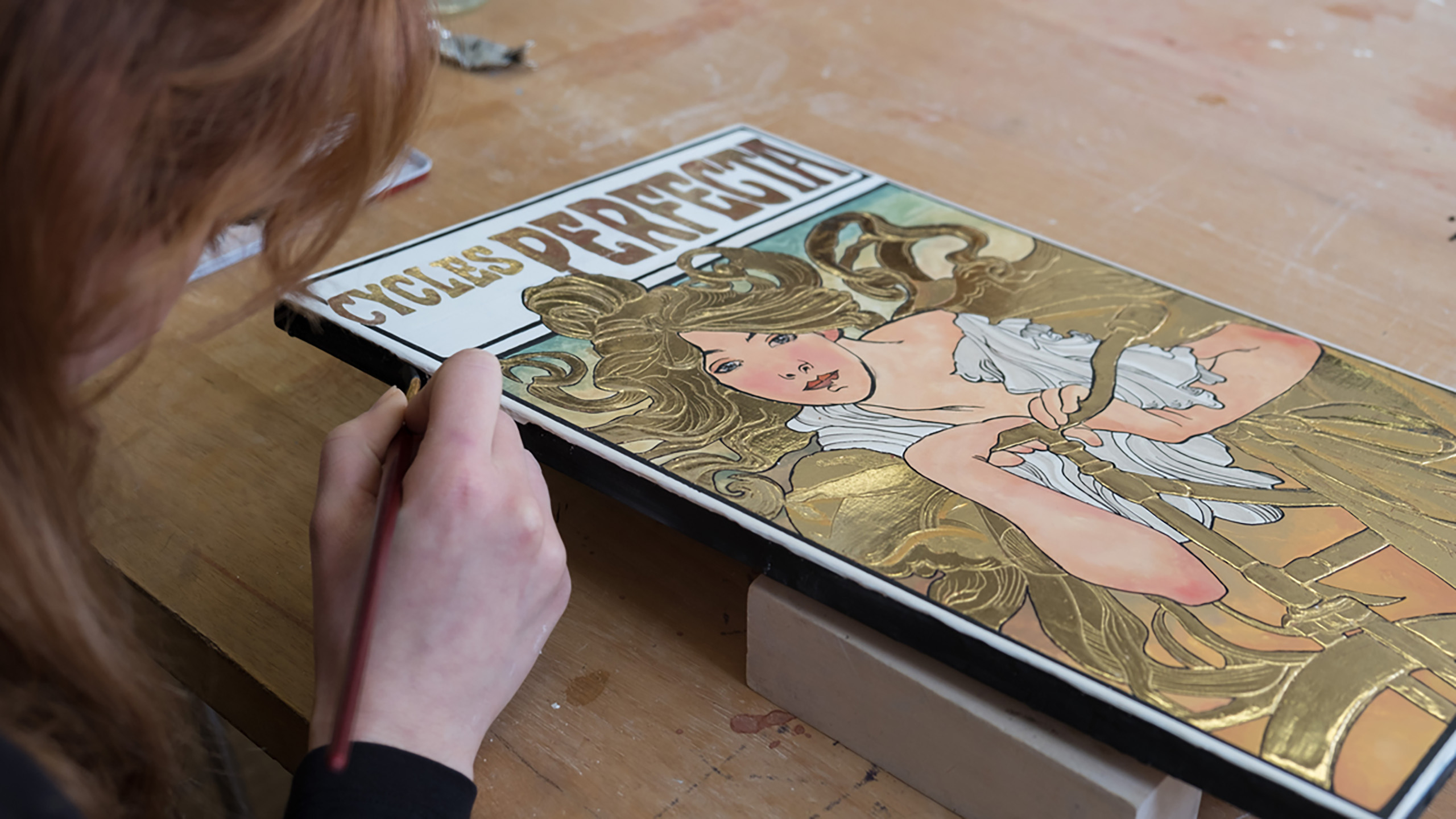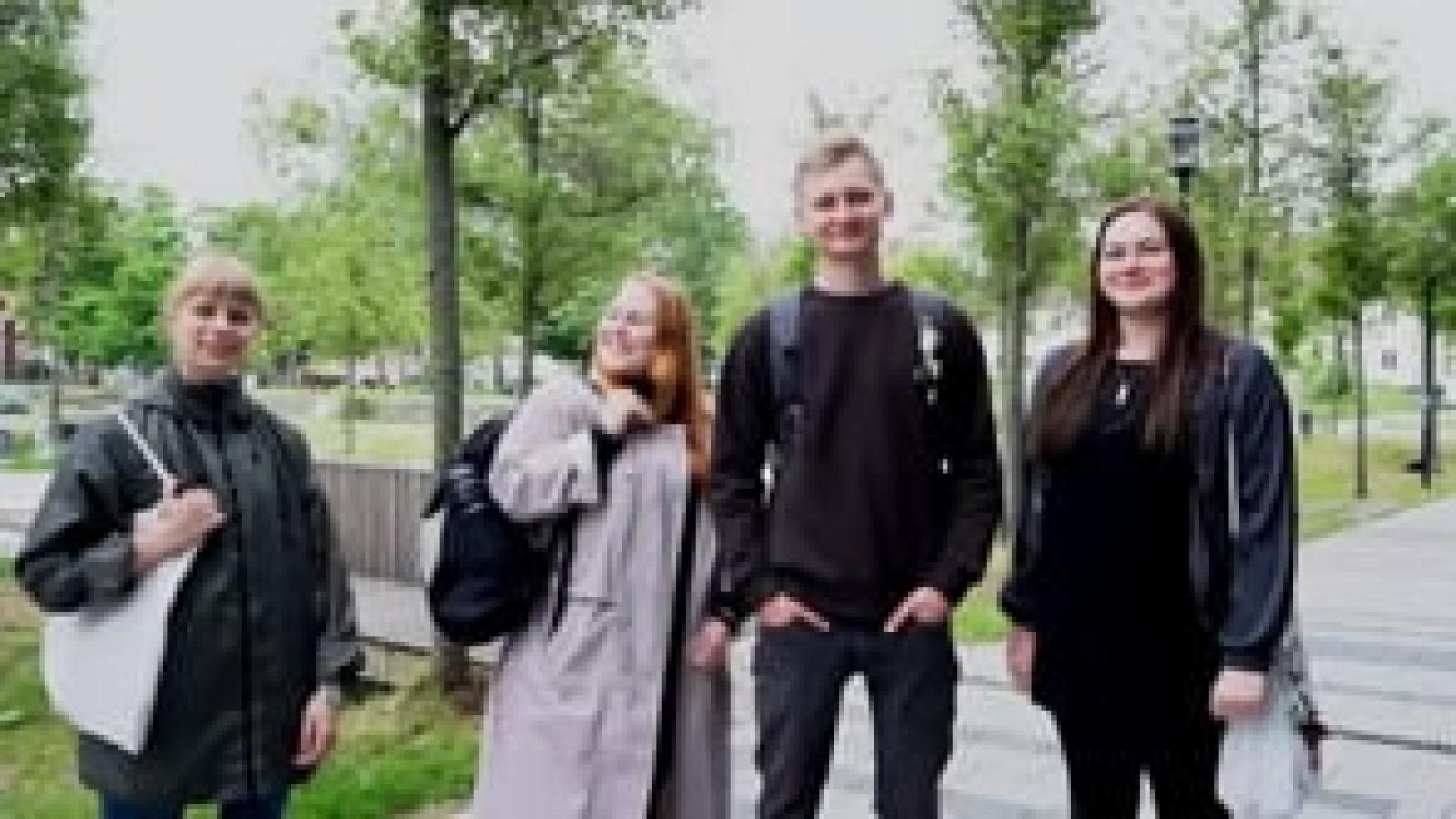The programmatic focus of the conservation and restauration degree programme is on the field of building monument conservation, but also includes the museum sector. The direct contact with the university's construction professions of architecture and civil engineering, the reference to the surrounding monuments, buildings and works of art as well as museums of the rich cultural landscape of Brandenburg and Berlin form optimal framework conditions for this.
Conservation and Restauration (BA)
Profile
Conservation and Restauration: The degree programme in profile
In the first semesters of the Bachelor's degree programme in Conservation and Restauration, we lay the foundation for understanding complex interrelationships in the conservation of (architectural) monuments. In doing so, we teach the most important basics of the study specialisations of wood, stone and mural painting. Students also gain insights into the fields of architecture, urban planning and civil engineering and learn to think and work in an interdisciplinary way.
The aim is to enable future conservators to preserve and restore historical art and cultural assets such as paintings, monuments, sculptures, furniture and buildings for future generations - to conserve and restore. Environmentally friendly and sustainable practices ensure the long-lasting preservation of these objects.
Students complete their practical semester in institutions and workshops outside the university. They put their knowledge into practice and critically review it. Our numerous co-operations with institutions and companies in Germany and abroad offer valuable opportunities for collaboration.
The specialisation in the higher semesters gives students the opportunity to work as a conservator for wood, stone or wall painting. They deepen their understanding of scientific methods as well as their knowledge of monument conservation, art and restauration history.
Is this degree programme right for me?
In the degree programme Conservation and Restauration, special emphasis is placed on specialist practice with object and research work in addition to the specialist theoretical teaching. The degree programme focuses on the subjects of conservation and restauration sciences, humanities and natural sciences as well as artistic design and applied historical or conservation-restauration work techniques.
You bring these qualities with you
- Desire to contribute to the preservation of our cultural heritage
- Interest in interdisciplinary cooperation
- Communication skills
- Creativity in the search for unconventional solutions
- Understanding of culture
- Feel for sustainability
Podcast of the Campus Specialists
As campus specialists, Anne and Silja share insider knowledge about the Conservation and Restauration degree programme. In addition to tips on aptitude tests or the study process, they provide insights into student life at the University of Applied Sciences Potsdam.
Information day for prospective students on the 12th of June 2024
Would you like to get to know the course content better, talk to students and discover the campus? Come to the information day of the Conservation and Restauration degree programme on the 12th of June!
Fields of study
Before taking up your studies, you can choose one of the specialisations wood, stone or mural painting.
Wood
In the field of study "wood", small objects, furniture and other pieces of equipment made of wood, whose surfaces can be refined with marquetry, stains, coatings and decorative paintings, are generally examined and processed. The master's programme focuses on building-related room elements, such as wood panelling on walls and ceilings, wooden floors, windows, doors, stairs, chairs and wooden constructions on historical buildings.
Stone
The focus of the "stone" field of study is the classical field of natural stone in the sense of sculpture and building. Other focal points are the regionally significant materials brick and terracotta, but also "artificial stone" such as reinforced concrete sculptures as well as the coloured setting on all these materials.
Mural painting
In addition to the defined areas of wall and ceiling painting on inorganic substrates, the "mural painting" field of study includes the identification of historical architectural colour schemes in interior and exterior areas. The subjects of mosaics and stucco complement the subject matter.
FAQ
Contact
The colleagues at the student counselling service provide information to prospective students, first-year students, parents, teachers and students on all general questions about studying. Do you have questions about the wood, stone and mural painting courses of the bachelor's degree programme in conservation and restoration? Take advantage of the counselling appointments of our subject counselling service.
Registration for a general counselling appointment for the degree programme: restaurierung@fh-potsdam.de or +49 331 580-4202
Please be sure to include your own telephone number so that you can be notified in the event of a rescheduled appointment.
Subject Counselling Service Wood
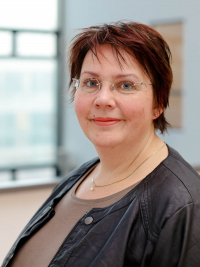
Prof. Dr. Angelika Rauch
Consultation appointments:
Please register in advance by e-mail: angelika.rauch@fh-potsdam.de to receive a registration confirmation.
Individual appointments can also be arranged on request.
04/01/2024 (online), 9.00 am
18/01/2024, 9.00 am
08/02/2024, 9.00 am
Location: Laboratory and workshop building (LW) in front of room 211
Subject Counselling Service Stone
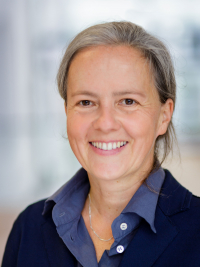
Prof. Dr. Jeannine Meinhardt
Consultation appointments:
Please register in advance by e-mail: jeannine.meinhardt@fh-potsdam.de to receive a registration confirmation.
Individual appointments can also be arranged on request.
20/12/2023, 11.00 am
04/01/2024, 11.00 am
11/01/2024, 11.00 am
17/01/2024, 11.00 am
Location: Laboratory and workshop building/room 243
Subject Counselling Service Mural Painting
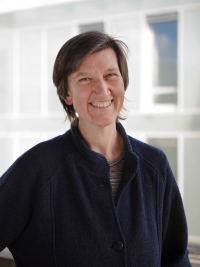
Dipl.-Rest. Tjalda Eschebach
Career Prospects
Career prospects
The competences of a conservator include extensive specialist knowledge and practical experience, a strong sense of responsibility, critical judgement and discourse skills (communicative competence, mastery of argumentation strategies). During your studies, you will also work on your ability to cooperate (willingness to compromise, pragmatism) and on your capacity for critical self-reflection as an essential characteristic of scientific work.
Possible areas of application
- Institutions such as museums, heritage offices, universities
- Restoration companies
- Freelance work, collaboration in conservator associations
- Self-employment: founding a workshop
Master's programme
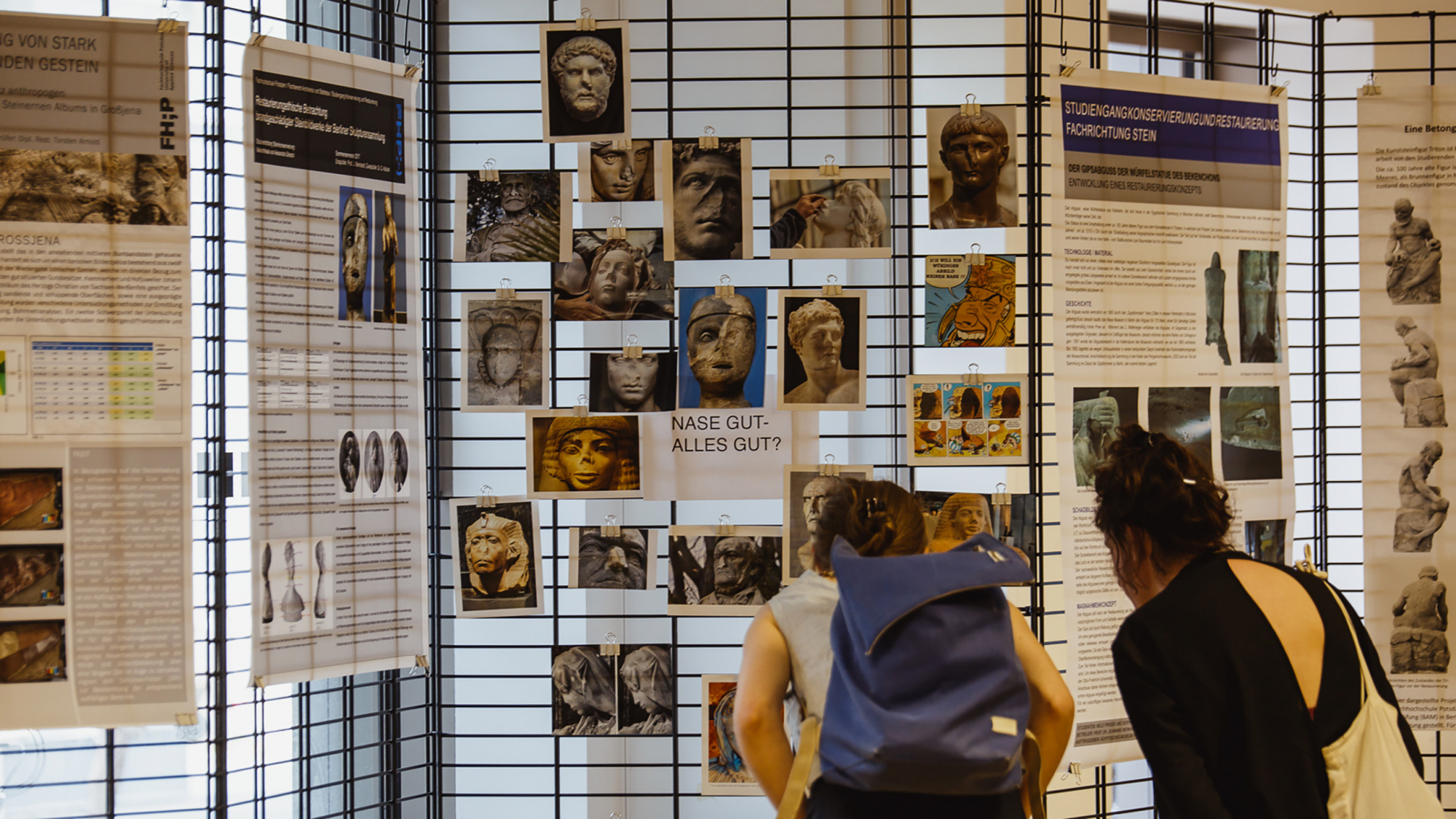
Preservation and care as a central task
"The central task of conservators is the preservation and care of art and cultural assets. In order to be able to meet the requirements of modern restoration, academic training is necessary. Only a university degree enables the conservator to accompany an object from the preliminary examination, analysis and concept development through the actual conservation or restoration to the necessary documentation and further care. Conservators need comprehensive technical skills and a trained artistic sensitivity when dealing with art objects. They must acquire detailed knowledge of the historical manifestations of their objects and their materials; in addition to an overview of art history, this also includes a sound knowledge of chemistry and physics as well as knowledge of other related sciences. Training is therefore an ongoing process that continues in professional life and necessitates targeted further training." Association of Conservators
Insights into the world of work
What comes after graduation? Graduates from the conservation and restoration degree programme give insights into their working world.
Our graduates work in very different areas – independently as conservators or as employees. They work in planning or execution, alone or in a team, with their own workshop or directly on site, e.g. in churches or museums. This diversity characterises the profession.
Study Content
Course of studies
The standard period of study for the full-time degree programme in conservation and restoration is seven semesters and concludes with a bachelor of arts degree. You will find a detailed overview in the study plan.
| Semester 1 | Compulsory subjects, Flex module |
| Semester 2 – 3 | Compulsory subjects, compulsory electives, flex module |
| Semester 4 | Practical course |
| Semester 5 – 6 | Compulsory subjects, compulsory electives, flex module, excursion |
| Semester 7 | Compulsory subjects, compulsory elective subjects, Flex module, Bachelor's thesis |
Study content
In the currently valid module handbooks, study and examination regulations and statutes of the degree programme, you will find the module overview, a detailed description of the modules and study contents, the study plan and the statutes for determining the degree programme-related aptitude for the degree programme conservation and restoration.
Teaching formats
- Lectures
- Seminars
- Exercises
- Project work
- Excursions
Compulsory subjects
- Scientific basics
- Natural sciences in conservation and restoration
- Scientific research methods
- Iconography
- History of art and architecture
- Art technology and conservation
- Projects in conservation and restoration
- Design
- Methods and materials in conservation and restoration
Elective subjects
- Material + reconstruction techniques
- Scientific working techniques + documentation
- Photographic techniques
- Computer-aided documentation techniques
- Art technology + conservation
- Preservation of historical monuments
- Building physics
- Scientific specialisation
- Special topics art history
- Foreign languages
- Professional topics, basics of business studies
Bachelor thesis
- Independent writing of a bachelor's thesis
- Colloquium
Natural Sciences & Design
Projects
More projectsMural Painting | The Mural Removals of the Wrestlers from the Olympic Village/Berlin, Elstal
After the handover of two strapped wall paintings of wrestlers from the "Haus der Nationen" in the Olympic Village, these murals depicting wrestling athletes in typical wrestling poses were to be transferred to a new support and restored.
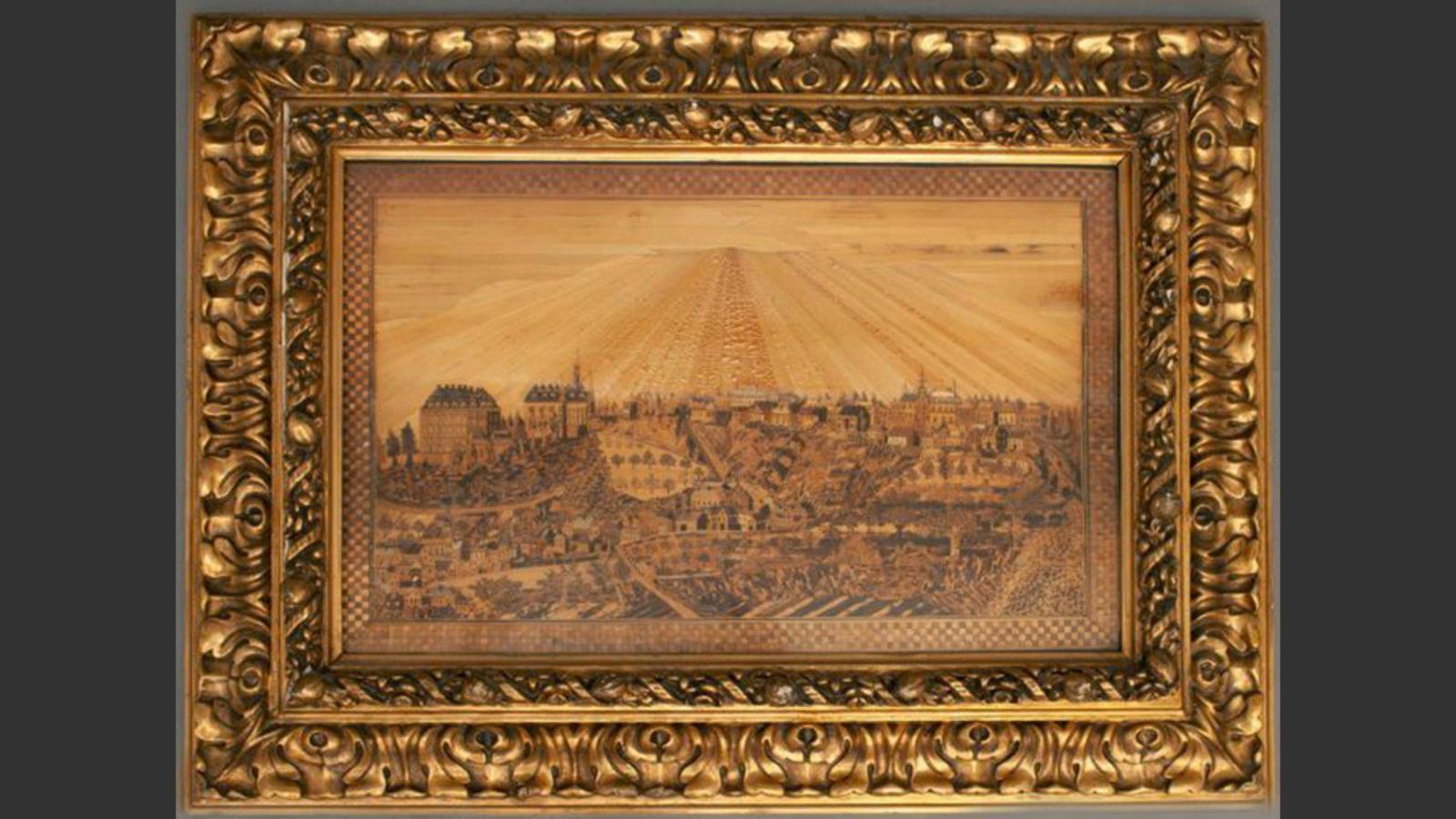
Wood | The Panorama of the Town of Schillingsfürst in Straw Marquetry
The straw marketer's picture shows a view of the town of Schillingsfürst on the Franconian Heights in the 19th century. The special technique involves assembling coloured pieces of straw into a scenic representation.
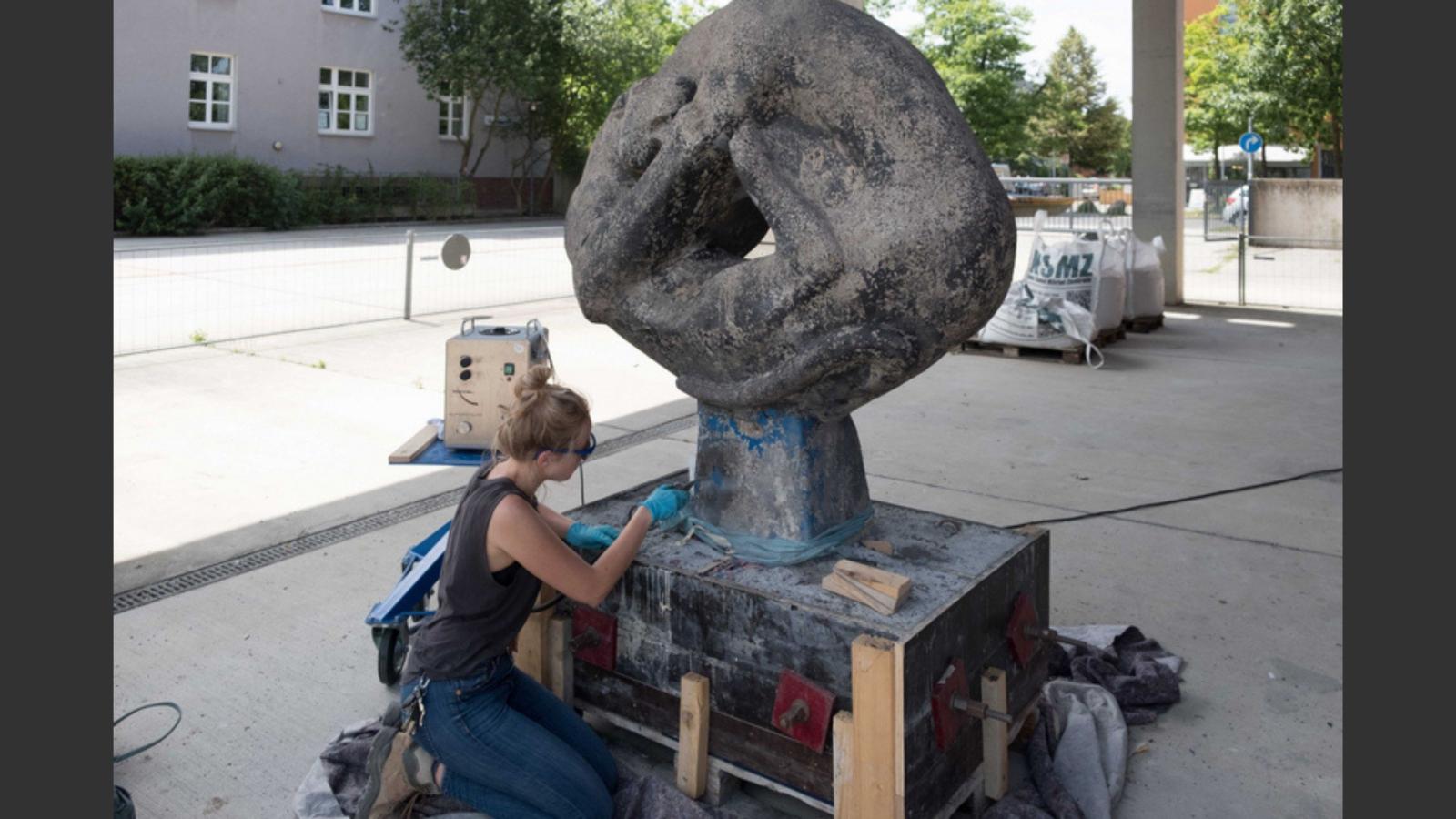
Stone | Sculpture "Rangelnde Panther" by Dietrich Rohde
The reinforced and multi-framed concrete sculpture by the sculptor Dietrich Rohde comes from Brandenburg an der Havel. The figure shows numerous damages, the cause of which lies in the numerous materials, the production technology, the installation, among other things.
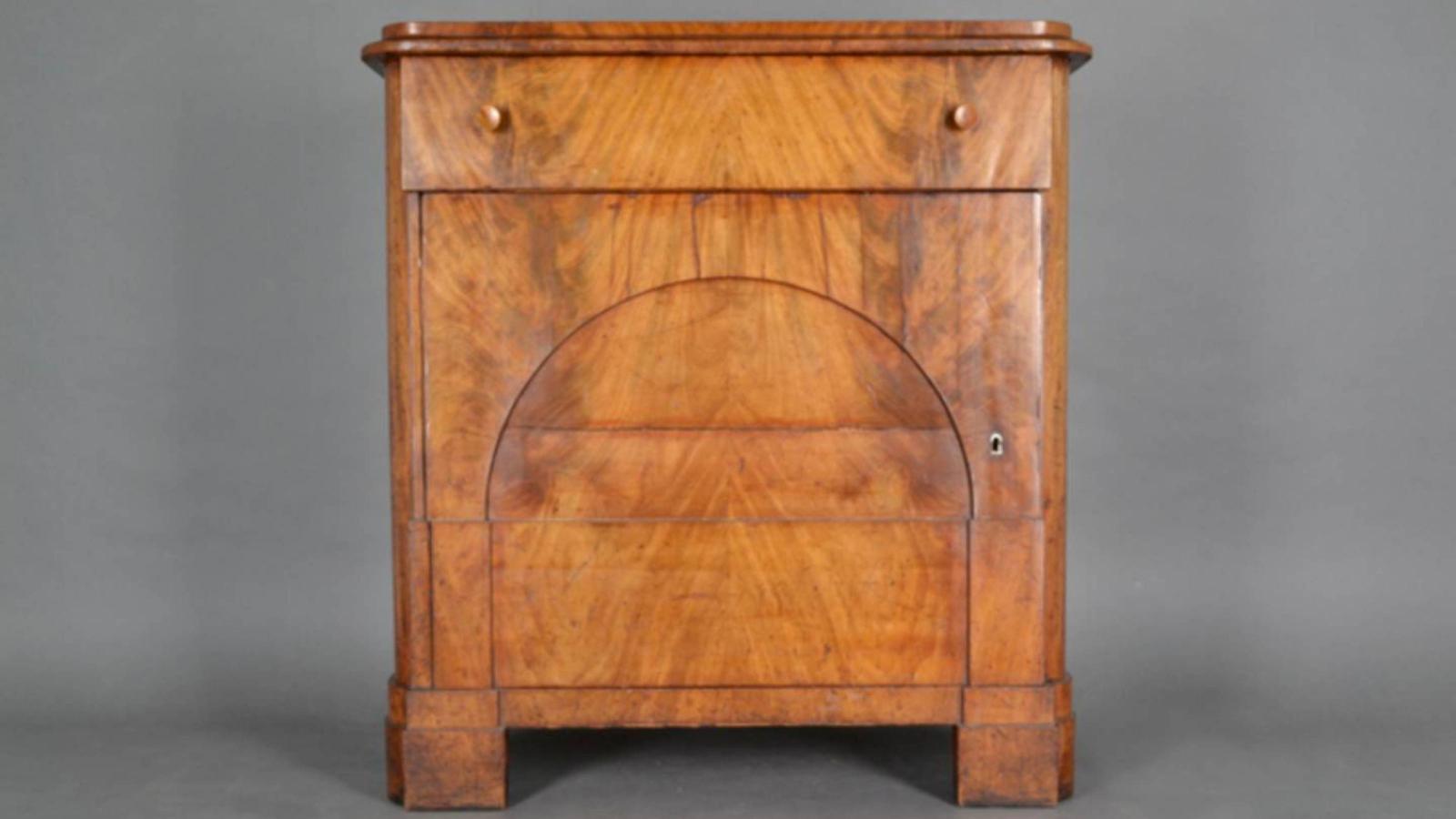
Wood | Restoration of a Piece of Biedermeier Furniture from a Private Collection
The object to be restored is a chest of drawers whose exact origin is unknown. It was probably produced in northern Germany. Stylistically, the furniture can be assigned to the Biedermeier period.
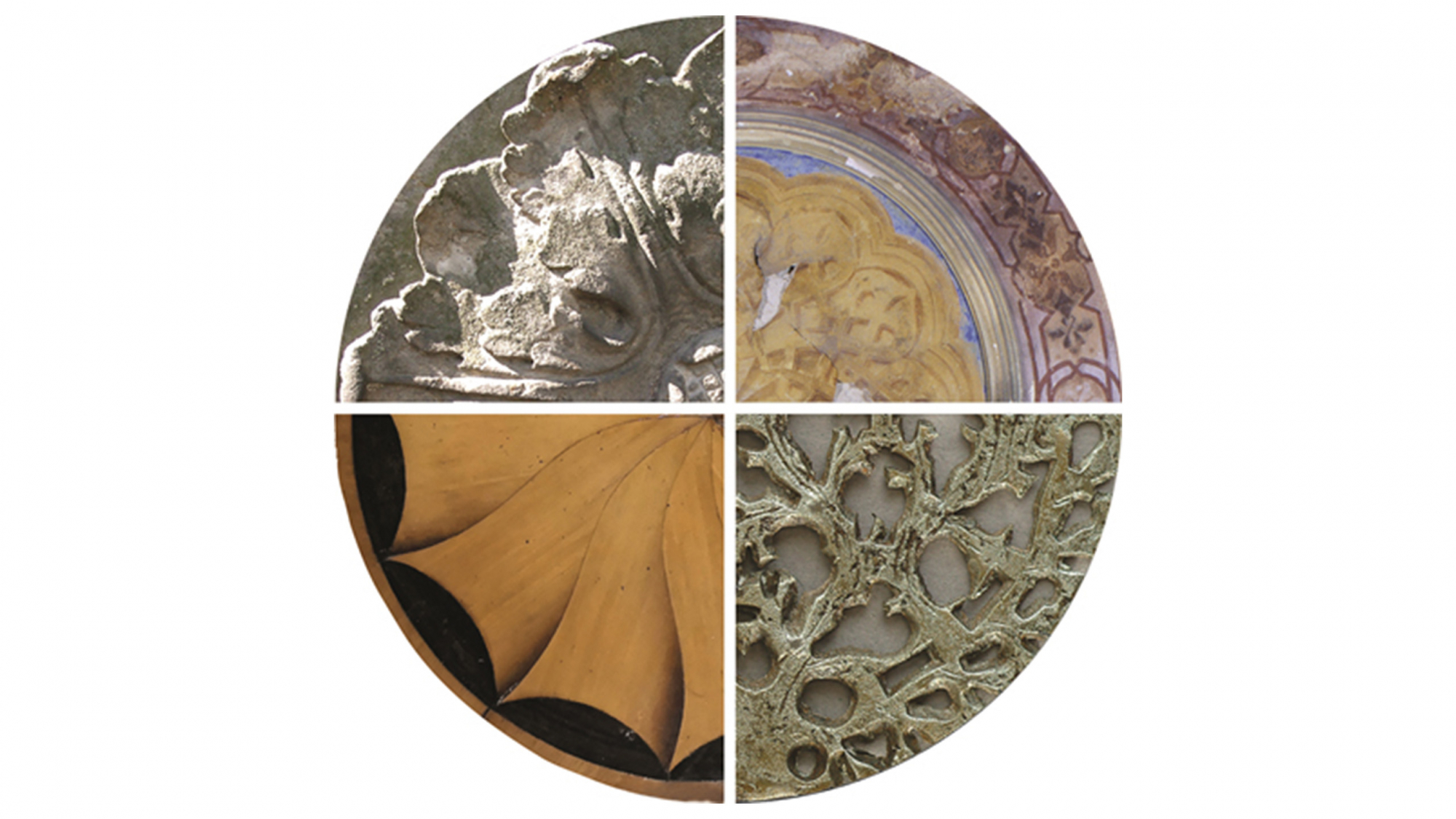
In study
On the pages of the CITY | BUILDING | CULTURE department you will find further useful information and documents on the degree programme, for example on the organisation of studies, the course catalogue and examination matters. In addition, current projects from the fields of study are presented there.
Application & Contact
Dates & requirements for your application
The most important deadlines, dates and admission requirements for the bachelor's degree programme in conservation and restoration are compiled here. You can find out which steps you need to take for a successful application in the next section.
Dates
- 12th of June: Info day for Conservation and Restauration
- until 18th of January: registration for the qualifying examination
- by 15th of July: submit online application
- by 15th of July: apply for a higher semester in order to continue a degree programme you have already started at the University of Applied Sciences Potsdam
Access requirements
- General university entrance qualification according to the Brandenburg university act: General university entrance qualification or entrance qualification for studies at universities of applied sciences or previous vocational training recognised as equivalent.
- Passed aptitude test
This is how you apply!
In the following, we explain which aspects you should pay attention to from the registration for the qualifying examination to the matriculation (enrolment).
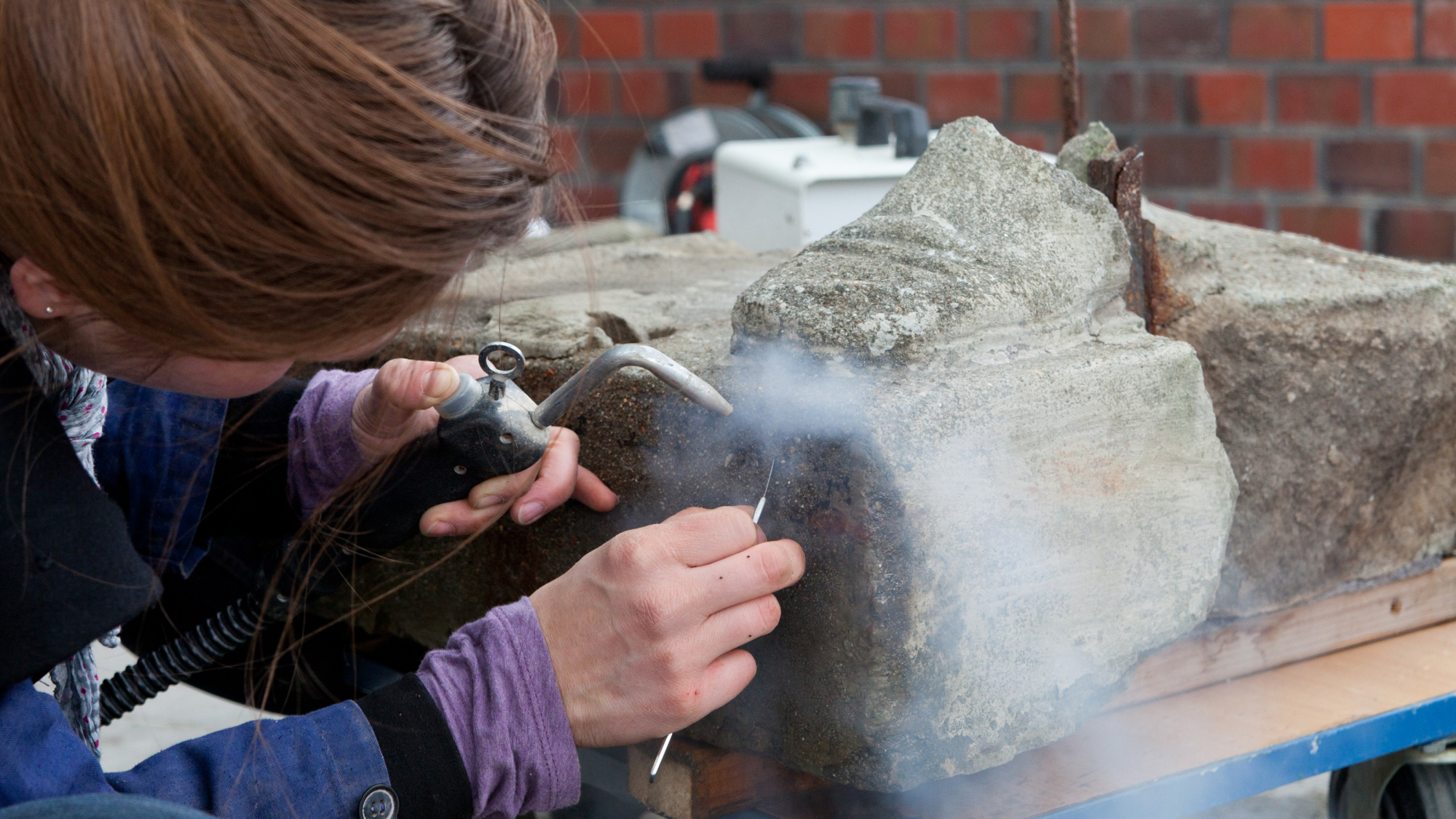
Pre-study internship
A preliminary internship is not required, but recommended. It is strongly recommended to be clear about the choice of the field of study through previous first experiences with materials, working processes and conditions.
The university does not require a one-year restoration internship, which should be predominantly oriented towards the intended field of study, but it is highly recommended as preparation for the degree programme.
The internship can be completed in a public restoration institution or a private restoration company. Applications to restoration workshops of museums and heritage offices are often promising. Information on internships with freelance restorers is available from the Association of Restorers, among others. The city of Potsdam offers internships at the Lower Monument Protection Authority and you can also search for vacancies via the Romoe Restorers' Network.
Further information
The following links provide you, and especially international applicants, with further information on the topics of application and enrolment at the University of Applied Sciences Potsdam.
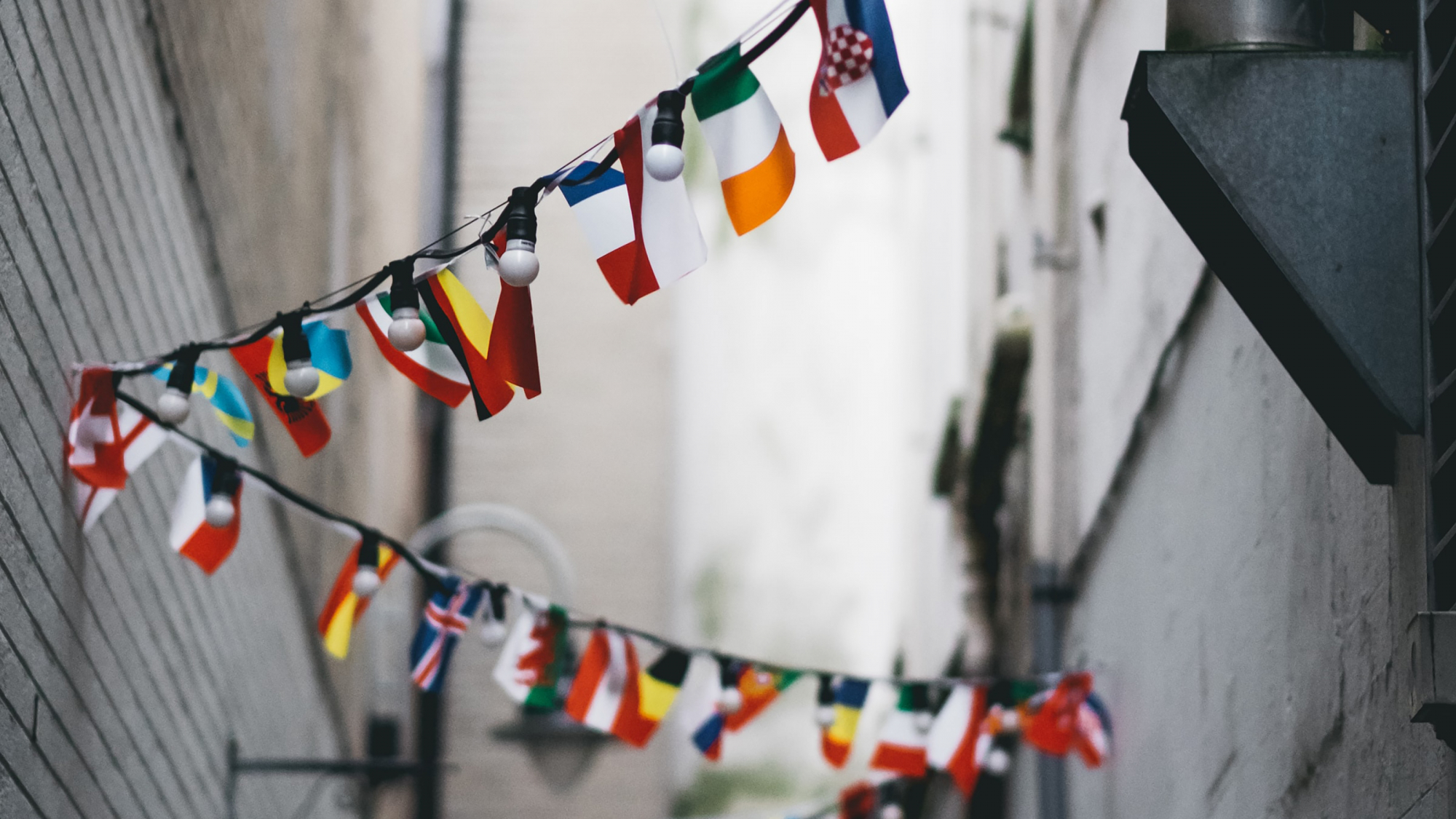
International applicants
You would like to apply for studies from the first or a higher semester and have acquired your school-leaving qualification and/or university degree abroad? Then you can have degrees and achievements acquired abroad recognised and study with us.
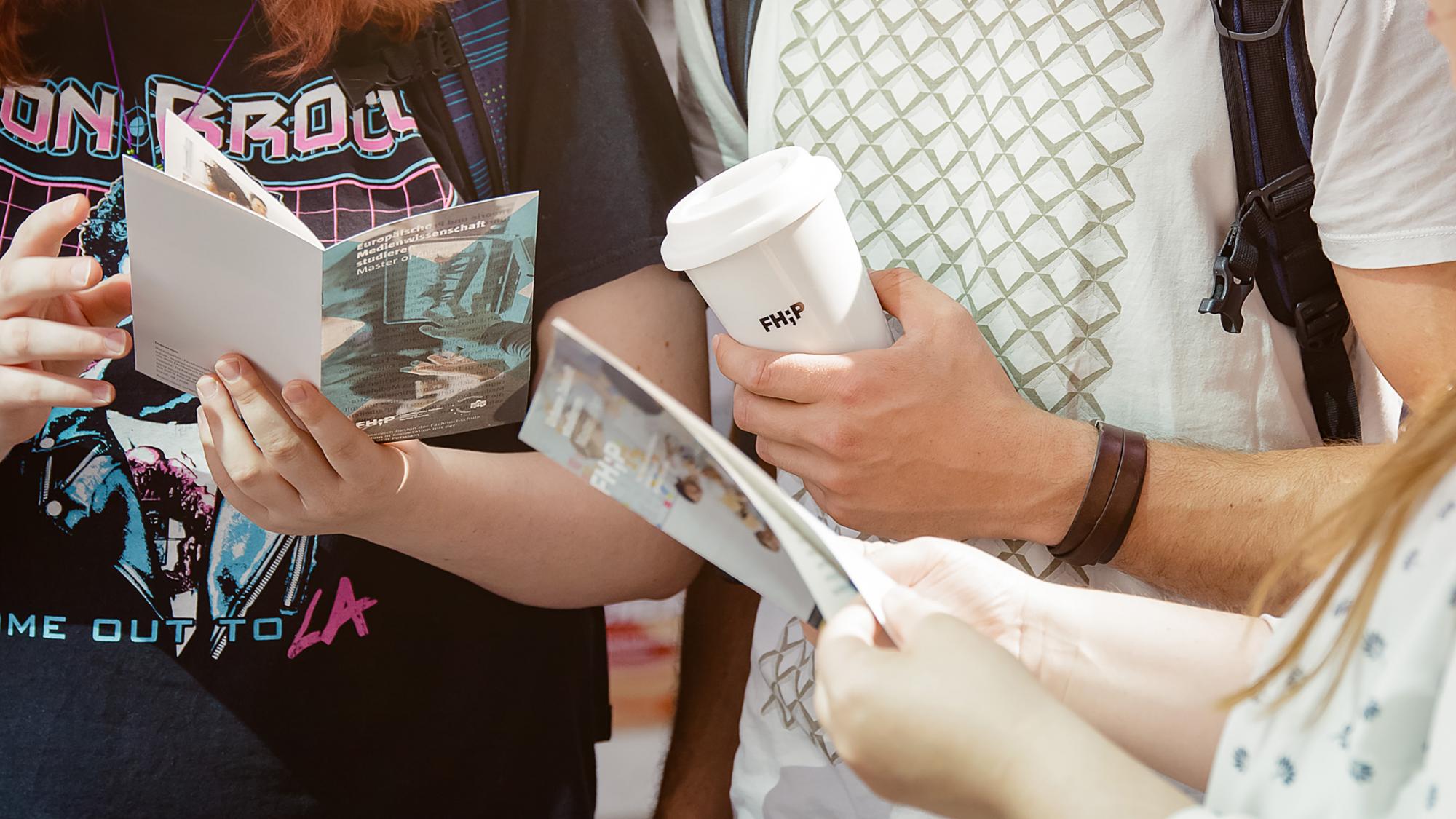
Application & Enrolment Procedure
The application and study service provides information and advice on general questions regarding the application process, admission and enrolment at the University of Applied Sciences Potsdam, application for a higher semester, but also on topics such as compensation for disadvantages, part-time studies, waiting semesters and hardship applications.
Application & Enrolment University of Applied Sciences Potsdam
Contact & Services
The student counselling service provides information and advice on general questions about studying as well as on topics such as choosing a degree programme, application, enrolment and study organisation.
For subject-specific questions on module contents, credit transfer, examinations or specialisations in the conservation and restoration degree programme, the subject counselling service is the right place to go.
Subject Counselling Service Wood

Prof. Dr. Angelika Rauch
Subject Counselling Service Stone

Prof. Dr. Jeannine Meinhardt
Subject Counselling Service Mural Painting

Dipl.-Rest. Tjalda Eschebach
Study and Examination Service
Study Info Service
studien-info-service@fh-potsdam.de
bewerbungs-service@fh-potsdam.de
campuskarte@fh-potsdam.de
Study Service
studien-service@fh-potsdam.de
Exam Service
pruefungs-service@fh-potsdam.de
Family Affairs Commissioner
Office hours
Tue and Thu 9.30 am – 1.30 pm
Commissioner for University Employees with Impairment
Office hours
by arrangement
Contact Persons Department of Student Affairs
